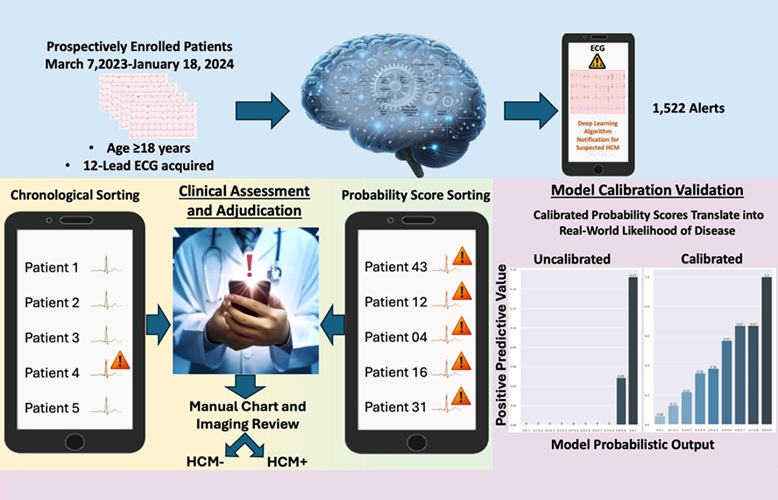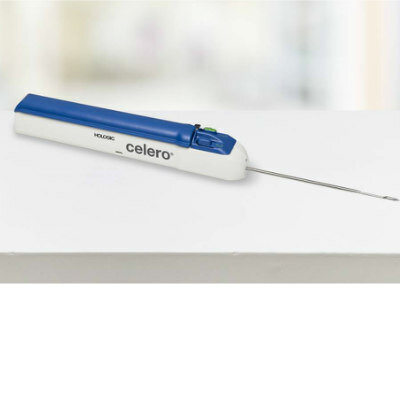Next Gen Energy-Based Surgical Robots to Perform Operations without Touching Human Tissues 
|
By HospiMedica International staff writers Posted on 09 Jun 2023 |

Current surgical tools that utilize concentrated energy, such as lasers, radiofrequency, or ultrasound probes, operate by heating and destroying tissue during surgical procedures. Now, a new generation of energy-based surgical robots will be able to better understand and monitor the effects of heat on body tissues, enabling surgeons to perform minimally invasive surgeries with greater precision and without harming healthy tissue.
Worcester Polytechnic Institute (WPI, Worcester, MA, USA) researcher Loris Fichera has been awarded a USD 599,663 grant by the National Science Foundation (NSF, Alexandria, VA, USA) for a five-year project that aims to create a new category of surgical robots. These robots will be capable of treating diseases by delivering concentrated energy, such as light, without cutting or touching human tissues. The grant will support the exploration of integrating lasers, radiofrequency, and ultrasonic probes into surgical robots. Moreover, the project will incorporate Fichera's research into experimental devices currently under development at WPI, specifically designed for vocal cord and brain surgeries.
Building on Fichera's prior work on a robotic device for vocal fold surgery, this project will consolidate his cross-disciplinary expertise in robotics and the effects of focused energy on human tissue. Fichera will create a technique known as "virtual palpation" to enhance a surgical robot's perception. This method uses low-intensity energy pulses to create a map of a particular body area and determine the precise amount of focused energy a surgeon needs to apply. This improved perception will be used by Fichera to incorporate better control and automation into surgical robots, including a handheld laser device being developed to vaporize tumors embedded in a patient's vocal folds. Furthermore, his approach will be applied to models created for a minimally invasive robotic system that utilizes ultrasound to eliminate brain tumors.
“Robotic systems that use focused energy have the potential to transform surgery from procedures that use mechanical forces to cut and stretch tissue into something that no longer involves blood and incisions,” Fichera said. “With a new theory of how robots can interact with their surroundings, we will empower the next generation of surgical roboticists to improve human health.”
Related Links:
WPI
Latest Surgical Techniques News
- DNA Origami Improves Imaging of Dense Pancreatic Tissue for Cancer Detection and Treatment
- Pioneering Sutureless Coronary Bypass Technology to Eliminate Open-Chest Procedures
- Intravascular Imaging for Guiding Stent Implantation Ensures Safer Stenting Procedures
- World's First AI Surgical Guidance Platform Allows Surgeons to Measure Success in Real-Time
- AI-Generated Synthetic Scarred Hearts Aid Atrial Fibrillation Treatment
- New Class of Bioadhesives to Connect Human Tissues to Long-Term Medical Implants
- New Transcatheter Valve Found Safe and Effective for Treating Aortic Regurgitation
- Minimally Invasive Valve Repair Reduces Hospitalizations in Severe Tricuspid Regurgitation Patients
- Tiny Robotic Tools Powered by Magnetic Fields to Enable Minimally Invasive Brain Surgery
- Magnetic Tweezers Make Robotic Surgery Safer and More Precise
- AI-Powered Surgical Planning Tool Improves Pre-Op Planning
- Novel Sensing System Restores Missing Sense of Touch in Minimally Invasive Surgery
- Headset-Based AR Navigation System Improves EVD Placement
- Higher Electrode Density Improves Epilepsy Surgery by Pinpointing Where Seizures Begin
- Open-Source Tool Optimizes Placement of Visual Brain Implants
- Easy-To-Apply Gel Could Prevent Formation of Post-Surgical Abdominal Adhesions
Channels
Critical Care
view channel
Smart Bandage Monitors Chronic Wounds in Human Patients
A future smart bandage, envisioned as a "lab on skin," could assist both patients and caregivers by not only monitoring chronic wounds but also delivering treatment and accelerating the healing process... Read more
AI Identifies Patients with Increased Lung Cancer Risk Up To 4 Months Earlier
Earlier diagnosis plays a crucial role in improving the prognosis of cancer, as delays in starting therapy are associated with decreased survival rates. In most cases, cancer is first identified when symptoms... Read more
AI Algorithm Identifies High-Risk Heart Patients
Hypertrophic cardiomyopathy (HCM) is a complex condition characterized by the thickening of the heart muscle, which impairs the heart's ability to pump blood effectively. This forces the heart to work... Read more
Next Gen Hemodynamic Monitoring Solution Provides AI-Driven Clinical Decision Support
A new cutting-edge hemodynamic monitoring platform, equipped with predictive artificial intelligence (AI)-based algorithms, is designed to help clinicians proactively manage blood pressure fluctuations... Read morePatient Care
view channel
Portable Biosensor Platform to Reduce Hospital-Acquired Infections
Approximately 4 million patients in the European Union acquire healthcare-associated infections (HAIs) or nosocomial infections each year, with around 37,000 deaths directly resulting from these infections,... Read moreFirst-Of-Its-Kind Portable Germicidal Light Technology Disinfects High-Touch Clinical Surfaces in Seconds
Reducing healthcare-acquired infections (HAIs) remains a pressing issue within global healthcare systems. In the United States alone, 1.7 million patients contract HAIs annually, leading to approximately... Read more
Surgical Capacity Optimization Solution Helps Hospitals Boost OR Utilization
An innovative solution has the capability to transform surgical capacity utilization by targeting the root cause of surgical block time inefficiencies. Fujitsu Limited’s (Tokyo, Japan) Surgical Capacity... Read more
Game-Changing Innovation in Surgical Instrument Sterilization Significantly Improves OR Throughput
A groundbreaking innovation enables hospitals to significantly improve instrument processing time and throughput in operating rooms (ORs) and sterile processing departments. Turbett Surgical, Inc.... Read moreHealth IT
view channel
Printable Molecule-Selective Nanoparticles Enable Mass Production of Wearable Biosensors
The future of medicine is likely to focus on the personalization of healthcare—understanding exactly what an individual requires and delivering the appropriate combination of nutrients, metabolites, and... Read more
Smartwatches Could Detect Congestive Heart Failure
Diagnosing congestive heart failure (CHF) typically requires expensive and time-consuming imaging techniques like echocardiography, also known as cardiac ultrasound. Previously, detecting CHF by analyzing... Read moreBusiness
view channel
Expanded Collaboration to Transform OR Technology Through AI and Automation
The expansion of an existing collaboration between three leading companies aims to develop artificial intelligence (AI)-driven solutions for smart operating rooms with sophisticated monitoring and automation.... Read more















